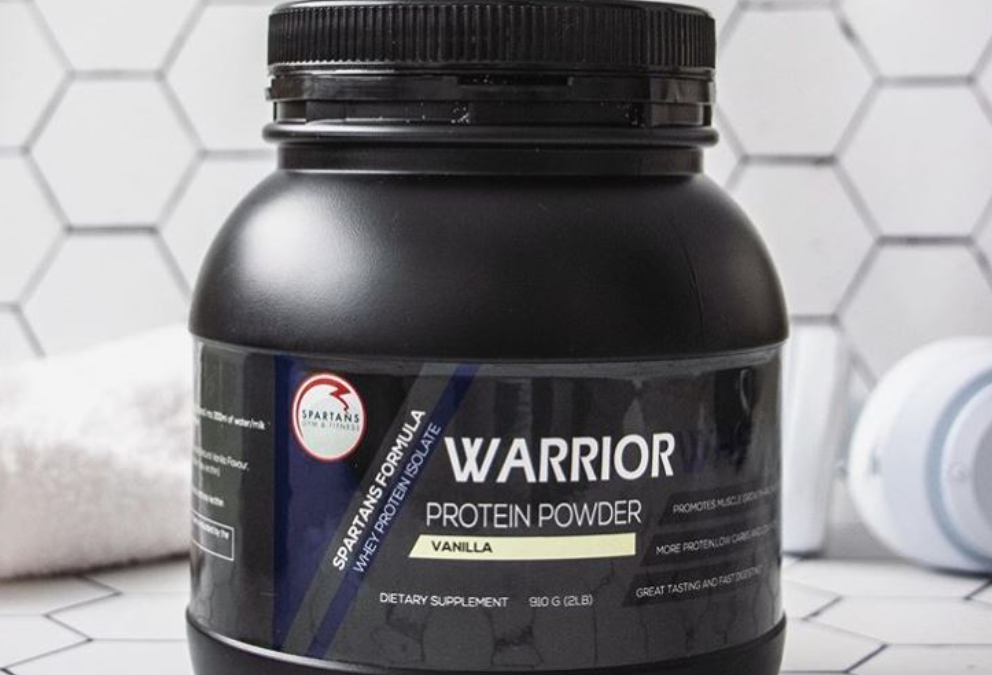The ageing process and muscle mass – written by Alesha Stagg
Studies have shown that muscle mass decreases during your 30’s with a ‘30-50% reduction between the ages of 40 to 80 years’ (1).
Why is this important? Well, if you’re looking to get stronger and/or look stronger, there is a correlation between a decline in muscle mass and decrease in muscle strength. (1)
So, what can you do to ensure your progress/meet your gym goals as you age? It is highly recommended to meet your protein requirements, of course. To improve your ‘adaptive response’ within the muscle post exercise is to sustain muscle protein synthesis. (2)
Ok. So, much protein should I be having? Regardless of your age, the RDA (Recommended Dietary Allowance) is 0.8g per kg. (3) However, please note this does not consider the physical activity you are doing each day. (3)
Warrior Protein Powder
Alright. So why the SWZ Protein?
We wanted to stock an extra brand of protein we believed in; we trialed a lot! Then we thought, “hmm…why not make our own?”, and here we have it. A brand of protein we have tested and thoroughly enjoyed!
The main ingredient is:
‘Whey Protein Isolate’, which in a nutshell means that it has a higher percentage of protein compared to its counterpart, ‘Whey Protein’ which has larger percentage of carbohydrates and fats and less protein for an equal scoop. Warrior Whey Protein can be purchased at Spartans supplement store for $64.99
Here is a recipe you can try using our delicious protein:
No-Bake Chocolate Peanut Butter Protein Bars
· 1 cup natural peanut butter (microwave prior to mixing)
· 3 tablespoons honey (microwave prior to mixing)
· 1 1/2 cups SWZ protein powder (chocolate)
· 1 cup oats (uncooked)
· 5 tablespoons water
· 1 tablespoon unsweetened cocoa
· 1 tablespoon chia seeds
· 1 tablespoon shredded coconut
Mix all the ingredients together and then place in a tray, press the recipe in firmly and refrigerate until it is hard. Then, chop it up and enjoy your snack!
Inspired from: HERE
Of course, if you have ANY concerns regarding your diet and if you are meeting requirements, do visit your health care practitioner. However, if you simply have questions regarding protein intake, we highly recommend some guidance from a Personal Trainer. Feel free to ask us at Reception help with finding the right trainer for you.
Referenced by: 1. Lonnie M, Hooker E, Brunstrom JM, et al. Protein for Life: Review of Optimal Protein Intake, Sustainable Dietary Sources and the Effect on Appetite in Ageing Adults. Nutrients. 2018;10(3):360. Published 2018 Mar 16. doi:10.3390/nu10030360
2. Atherton PJ, Smith K. Muscle protein synthesis in response to nutrition and exercise. J Physiol. 2012;590(5):1049–1057. doi:10.1113/jphysiol.2011.225003
3. Food and Nutrition Board (FNB) of the Institute of Medicine . Dietary Reference Intakes for Energy, Carbohydrate, Fibre, Fat, Fatty Acids, Cholesterol, Protein and Amino Acids (Macronutrients) The National Academies Press; Washington, DC, USA: 2005

